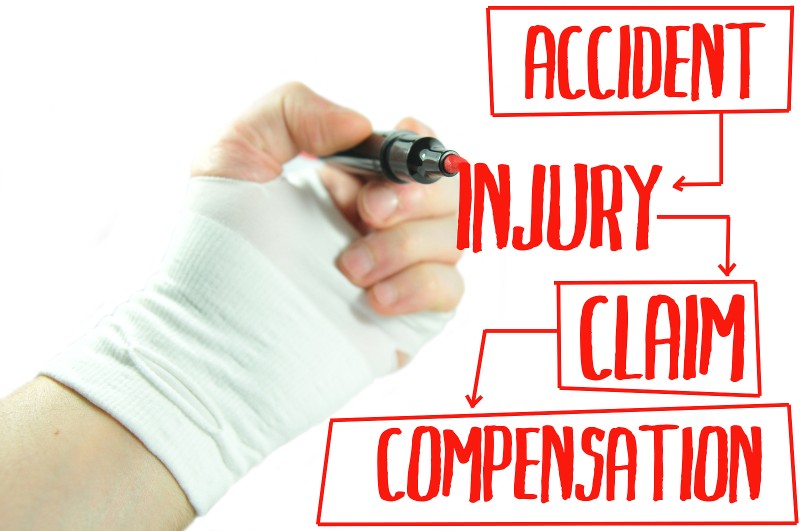How Do Personal Injury Cases Work?

You deserve financial compensation in the aftermath of a personal injury. Even if the incident that caused your pain is only mostly the fault of another party, it is possible to obtain significant financial compensation to right this wrong. However, if you are like most injury victims, you aren’t sure how personal injury cases work. Here’s a quick explanation of the progression of personal injury cases from start to finish.
Injury Documentation and Legal Assistance
Your personal injury attorney will compile evidence to prove the negligence of another person, business, or other party. Negligence is a legal term that means the failure to provide due care. However, you can do your part to enhance your case by collecting evidence. Document the accident with pictures, the contact information of eyewitnesses, video recordings, and medical records in the immediate aftermath of the incident. Bring the evidence to your personal injury attorney for review, and he or she will determine whether there is solid legal footing to file a lawsuit.
Let Your Attorney Get to Work
Now that you have met with a personal injury attorney, momentum for justice has been established. This is a time to recover, receive medical treatment, and focus on eventually returning to work. Let your personal injury attorney research the case and put the wheels of justice in motion to obtain financial compensation for losses.
Your attorney will reach out to the insurer to discuss the claim. Though the insurance provider will likely float out a settlement offer, it might not be sufficient. Discuss settlement offers with your personal injury attorney, and consider countering the offer or pursuing justice through civil litigation. When in doubt, lean on your personal injury attorney for guidance to determine whether it is in your financial interest to accept the settlement offer or proceed to mediation or litigation.
Filing the Lawsuit
If the insurer’s settlement offer is insufficient, the stage is set for mediation or a personal injury lawsuit in civil court. The potential downside to civil litigation is that it might not lead to a significantly larger financial award than possible in mediation. Furthermore, there is also a chance that litigation will prove much more time-consuming than mediation.
Your personal injury attorney will file the lawsuit on your behalf. Personal injury cases include a legal document referred to as the Complaint that delves into the details of the injury, stating how it occurred and the resulting damages. The Complaint is filed in the jurisdiction where the injury occurred. The Complaint is then served to the defendant through a process server.
The defendant must respond to the Complaint with an Answer filed with the court in a timely manner. The Answer formally addresses the allegations of negligence. The litigation process includes a discovery period in which evidence is listed for review. Discovery also consists of a question-and-answer period referred to as interrogatories. The discovery process also includes requests for documents to be presented in court hearings. Witnesses, experts, and other parties are required to provide statements on the record. Let your attorney handle these legal challenges on your behalf while you remain focused on rebuilding your body, mind, and spirit in the aftermath of this tragedy.
Motions, the Trial, and a Potential Financial Award
The personal injury lawsuit unfolds in the ensuing days and weeks. Though there is the potential for mediation to resolve the conflict with a mutually agreed upon financial award to the plaintiff (meaning you, the injured party), there is the potential to obtain even more compensation through formal litigation.
Most personal injury lawsuits are characterized by evidence, testimony, and motion requests submitted to the judge. The judge presiding over the case determines whether motions are denied or approved, ultimately determining the course of the litigation. The case proceeds through trial, during which legal arguments are made, evidence is presented, and witnesses testify.
If it is determined that the defendant is legally liable for the injury, that party is required to pay damages to offset losses. Though there is the potential for the defendant to appeal the decision, the odds of winning an appeal that completely reverses all awarded damages are low. The monetary award is then distributed to you, the plaintiff, after companies with legal claims to a portion of the funds are compensated. However, if there are no legal claims to the monetary compensation, the entirety of the award is yours to keep minus the small contingency fee paid to your personal injury attorney. Your attorney receives a specific percentage of the monetary award. The contingency fee percentage is predetermined prior to the start of your personal injury trial.
Schedule a Consultation With McGilberry & Shirer
Have you suffered a personal injury in Dallas/Fort Worth? If you know or suspect the injury is the result of another person or party’s carelessness, contact our personal injury attorneys to schedule a consultation. You can contact our law firm by dialing 972-392-1225.

